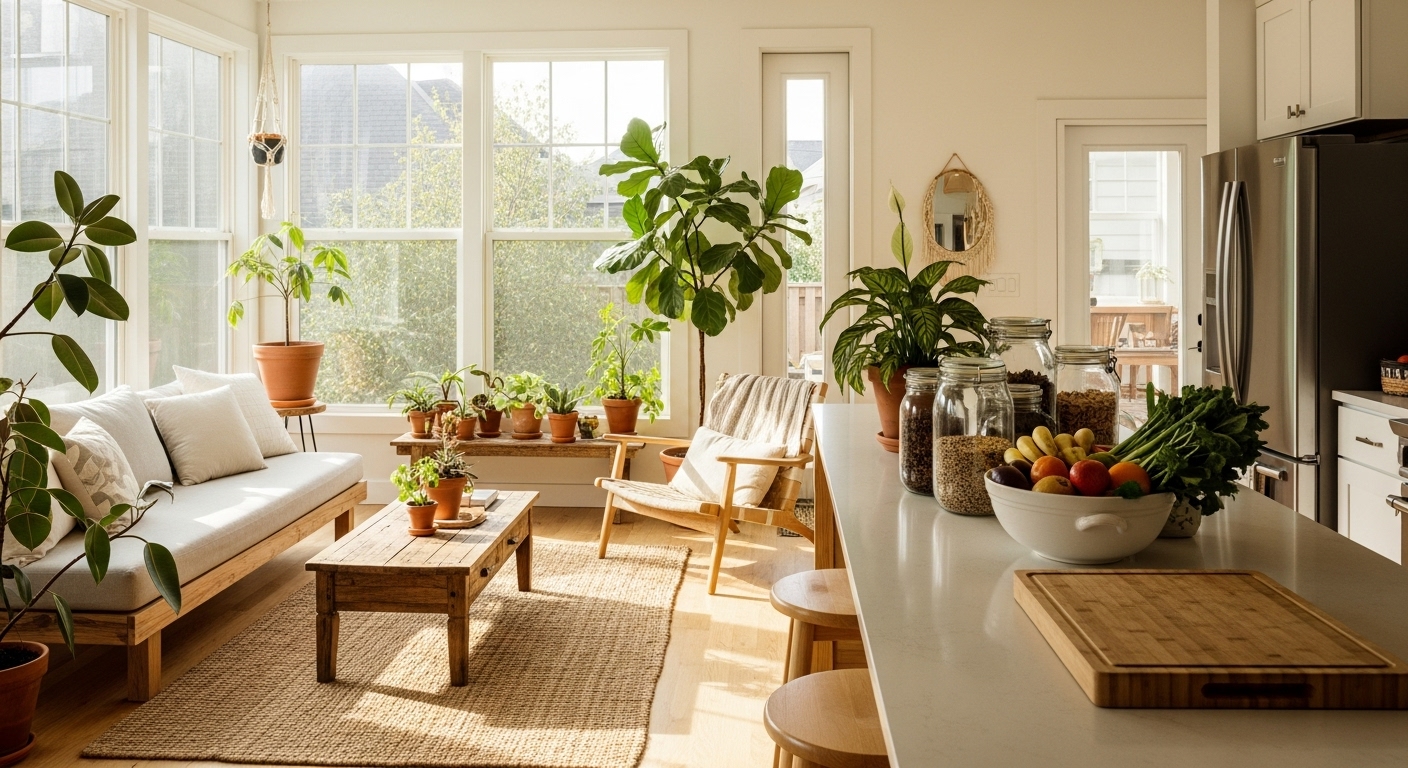In an era defined by climate change and environmental awareness, the concept of a conscious home has moved from a niche idea to a mainstream aspiration. More and more people are recognizing the profound impact our homes have on the planet and are actively seeking ways to minimize their environmental footprint. This ultimate guide explores the blueprint for achieving a zero-waste, green living environment. It delves into practical strategies, innovative technologies, and mindful practices that can transform your home into a sustainable haven. From energy efficiency and waste reduction to eco-friendly materials and conscious consumption, we’ll cover all the essential elements for creating a home that not only benefits you and your family but also contributes to a healthier planet.
Within this guide, we’ll explore the latest trends in green home design, discuss the challenges and opportunities of adopting a zero-waste lifestyle, and provide actionable tips for making your home more sustainable. We will also explore the financial benefits of green living, demonstrating how eco-friendly choices can lead to long-term savings. Get ready to embark on a journey towards a more sustainable and fulfilling way of life, starting with your very own conscious home!
Understanding the Green Home Philosophy
The green home philosophy extends beyond mere aesthetics; it’s a holistic approach to living that prioritizes environmental responsibility and sustainability. At its core, it’s about minimizing the negative impacts of our homes on the planet while maximizing the positive contributions. This involves considering every aspect of our living spaces, from the materials used in construction to the energy and water consumed daily. Embracing a green home philosophy means making conscious choices that align with ecological principles, such as reducing carbon emissions, conserving natural resources, and promoting biodiversity. It also entails fostering a deeper connection with nature and cultivating a sense of stewardship for the environment.
One of the key principles of a green home is energy efficiency. This involves implementing strategies to reduce energy consumption, such as using energy-efficient appliances, insulating walls and roofs, and installing solar panels. Another important aspect is water conservation, which can be achieved through low-flow fixtures, rainwater harvesting, and efficient landscaping practices. Waste reduction is also a critical component, encompassing recycling, composting, and minimizing the use of disposable products. By adopting these practices, we can significantly reduce our environmental footprint and create homes that are not only comfortable and healthy but also sustainable for future generations. As more individuals embrace this philosophy, the collective impact can be transformative, paving the way for a more sustainable and resilient future.
Energy Efficiency Maximizing Savings and Reducing Impact
Energy efficiency is a cornerstone of green home living, offering a pathway to significant cost savings and a reduced environmental impact. By minimizing energy consumption, homeowners can lower their utility bills, decrease their carbon footprint, and contribute to a more sustainable future. There are numerous strategies for enhancing energy efficiency in the home, ranging from simple behavioral changes to more substantial investments in energy-saving technologies. One of the most effective measures is improving insulation, which helps to keep homes warmer in the winter and cooler in the summer, reducing the need for heating and cooling systems. Upgrading to energy-efficient appliances, such as refrigerators, washing machines, and dishwashers, can also make a significant difference in energy consumption.
Another key aspect of energy efficiency is lighting. Switching to LED bulbs, which use up to 75% less energy than traditional incandescent bulbs, can result in substantial savings over time. Additionally, optimizing natural lighting by strategically placing windows and skylights can reduce the need for artificial lighting during the day. Smart home technologies, such as programmable thermostats and energy monitoring systems, can further enhance energy efficiency by allowing homeowners to track and control their energy usage more effectively. By implementing these strategies, homeowners can not only save money but also contribute to a more sustainable and energy-efficient future. According to the U.S. Department of Energy, improving energy efficiency is one of the most cost-effective ways to reduce greenhouse gas emissions and combat climate change.
Water Conservation Strategies for a Sustainable Home
Water conservation is an essential component of green home living, particularly in regions facing water scarcity or drought conditions. By implementing water-saving strategies, homeowners can reduce their water bills, conserve precious resources, and minimize their environmental impact. One of the most effective measures is installing low-flow fixtures, such as showerheads, faucets, and toilets, which use significantly less water than traditional models. Another important aspect is efficient landscaping, which involves selecting drought-tolerant plants, using mulch to retain moisture, and implementing smart irrigation systems. Rainwater harvesting is also a valuable strategy, allowing homeowners to collect and store rainwater for use in irrigation, toilet flushing, and other non-potable purposes.
In addition to these measures, homeowners can also adopt water-wise practices in their daily routines. This includes taking shorter showers, fixing leaks promptly, and avoiding unnecessary water usage. Washing machines and dishwashers should be used only when fully loaded, and water-efficient models should be considered when replacing appliances. By implementing these strategies, homeowners can significantly reduce their water consumption and contribute to a more sustainable water future. According to the Environmental Protection Agency (EPA), the average household can save thousands of gallons of water per year by implementing water-efficient practices. Moreover, water conservation can also reduce energy consumption, as it takes energy to pump, treat, and distribute water.

